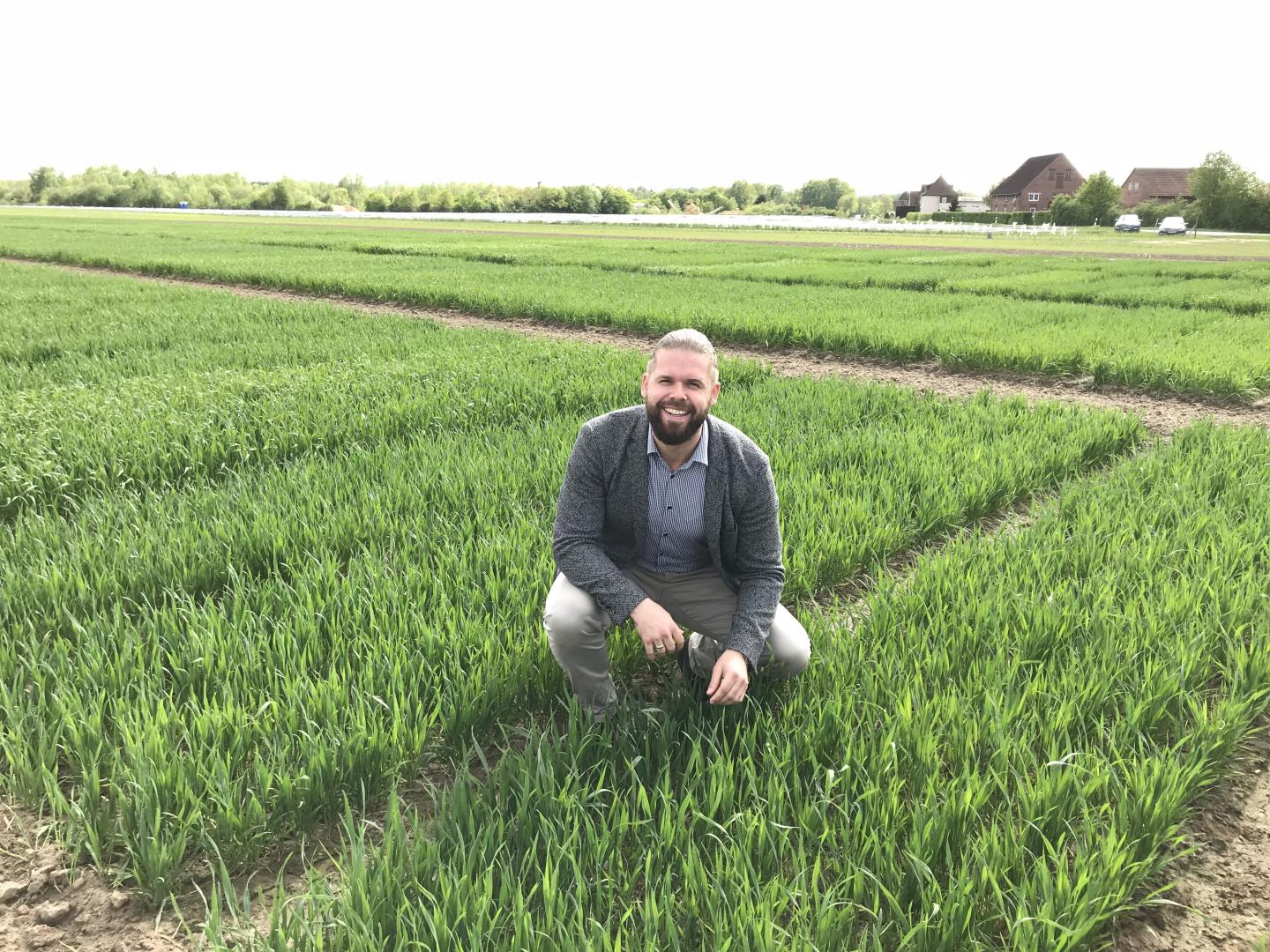The pervasive myth that intensive breeding has made modern wheat cultivars weaker and more dependent on pesticides and fertilisers is debunked by a major new study

Credit: Kai Voss-Fels
The myth that modern wheat varieties are more heavily reliant on pesticides and fertilisers is debunked by new research published in Nature Plants today.
Lead author on the paper, Dr Kai Voss-Fels, a research fellow at The University of Queensland, said modern wheat cropping varieties actually out-perform older varieties in both optimum and harsh growing conditions.
“There is a view that intensive selection and breeding which has produced the high-yielding wheat cultivars used in modern cropping systems has also made modern wheat less resilient and more dependent on chemicals to thrive,” said Dr Voss-Fels.
“However, the data unequivocally shows that modern wheat varieties out-perform older varieties, even under conditions of reduced amounts of fertilisers, fungicides and water,” he said.
“We also found that genetic diversity within the often-criticised modern wheat gene pool is rich enough to generate a further 23 per cent increase in yields.”
Dr Voss-Fels said the findings might surprise some farmers and environmentalists.
“Quite a few people will be taken aback by just how tough modern wheat varieties proved to be, even in harsh growing conditions, such as drought, and using less chemical inputs.”
Dr Voss-Fels said the findings could have potentially important implications for raising the productivity of organic cropping systems.
“It’s been widely assumed that the older wheat cultivars are more robust and resilient but it’s actually the modern cultivars that perform best in optimum and sub-optimum conditions.”
Wheat is the world’s most important food crop.
However, with global wheat yields reduced due to droughts in recent years and more climate risk anticipated in the future, the hardiness of modern wheat varieties is an issue of global significance.
The study is believed to provide the most detailed description of the consequences of intensive breeding and genetic selection for high grain yield and associated traits in European wheat over the past 50 years.
It was led by Professor Rod Snowdon of the Justus-Liebig-University Gießen (JLU), who is also an honorary Professor at UQ, in collaboration with seven other German universities.
The genetic analysis was undertaken at QAAFI under the leadership of Professor Ben Hayes.
The first part of the study involved testing 200 wheat varieties that have been essential to agriculture in Western Europe in the past 50 years.
Performance was compared between those varieties in side-by-side field trials under high, medium and low chemical input conditions.
The second part of the study was undertaken at QAAFI, to match the performance differences with the different varieties’ genetic make-up.
“This genetic information allows us to take the discovery to the next level,” Dr Voss-Fels says.
“We can use artificial intelligence (AI) algorithms to predict the optimal crosses needed to bring together the most favourable segments as fast as possible.”
###
The paper ‘Breeding improves wheat productivity under contrasting agrochemical input levels’ was published in Nature Plants 17 June 2019 (DOI: 10.1038/s41477-019-0445-5).
For more information:
Dr Kai Voss-Fels | [email protected] | +61 7 334 62288
Professor Ben Hayes | [email protected] | + 61 7 334 62173
Media: Margaret Puls | [email protected] | 0419 578 356
Corresponding Author:
Rod Snowdon
Justus Liebig University, Giessen, Germany
Email: [email protected]
Media Contact
Kai Voss-Fels
[email protected]
Related Journal Article
http://dx.




